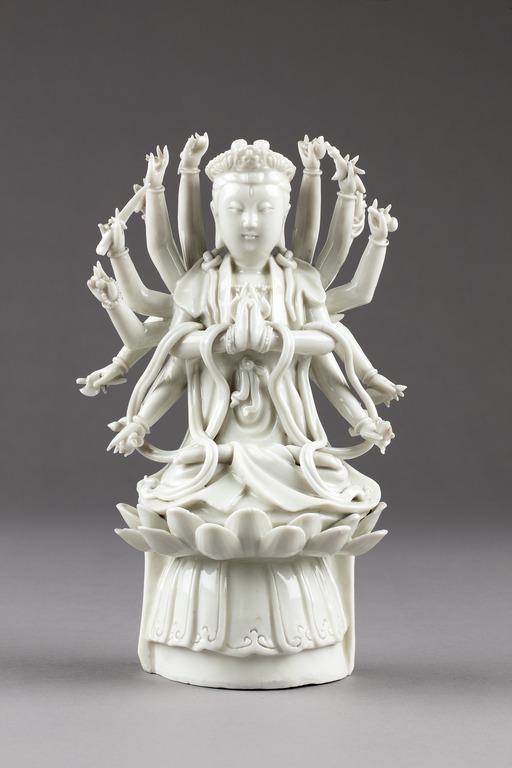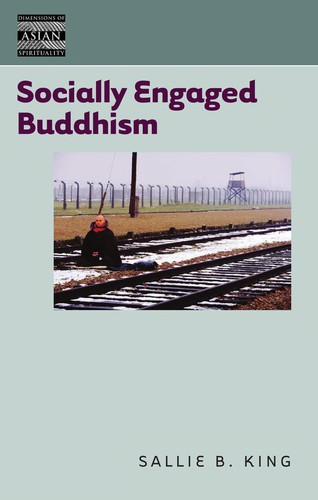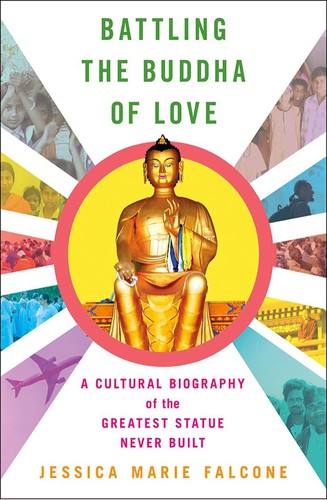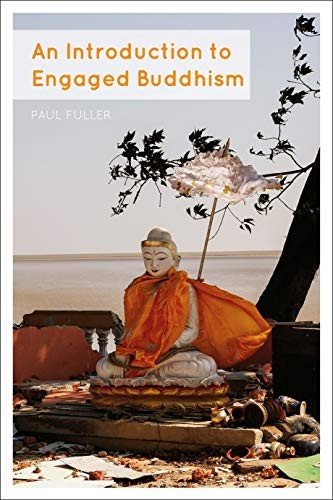Engaged Buddhism
Subscribe to this topic via: RSS
How should Buddhism respond to modern, social problems?

A small Guanyin statue at the Hallwyl Museum has many arms holding a variety of implements to symbolize the many ways she has to help sentient beings.
Table of Contents
Books (12)
Featured:
-
200 pages
-
⭐ Recommended
From suffering arises desire to end suffering. The secular humanistic activist sets himself the endless task of satisfying that desire, and perhaps hopes to end social suffering by constructing utopias. The Buddhist, on the other hand, is concerned ultimately with the transformation of desire.
-
Is it an “applied” Buddhism that is a recent development within Buddhism proper, or is it perhaps a dimension of traditional Buddhism that has always belonged properly to it?
-
320 pages[recommended but under copyright]
-
240 pages[recommended but under copyright]
See also:
Canonical Works (8)
Featured:
-
One day, I saw several monks who were very thirsty and had fallen to the ground. I got up quickly and offered them water to drink.
-
⭐ Recommended
You are my children, my sons, born from my mouth, born of the Dhamma…
-
These are the five gifts of a bad person.
-
Bhikkhus, one who is engaged is unliberated.
See also:
Readings (70)
Featured:
-
🥇 Best of
… the most important sources of suffering are not something that activism can fix
-
⭐ Recommended
To formulate a viable, systematic Buddhist environmental ethic, they must clarify on Buddhist grounds what an optimal world might be
-
… the belief that all engagement is Western-influenced seems to endure, so Buddhists who avoid doctrinal hybridization may be assumed to not engage. These assumptions persist because relatively few studies are done on Buddhists’ and especially traditionalists’ actual engagement; some studies mischaracterize engaged traditionalists as modernists; and little research on today’s traditionalists, engaged or not, is done because scholars of contemporary Buddhism gravitate toward modernists.
-
This article presents research on one traditionalist group, Foundation for the Preservation of the Mahayana Tradition (FPMT). It describes FPMT’s engagement, identifies its motivations, objectives, and activities, and examines the possibility that it represents a type of engagement that can be called “traditionalist.”
-
Templestay has become popular among Koreans struggling to cope with an ever more competitive and precarious social and economic environment.
-
Buddhists in Asia and the West who adapted Buddhism to a range of nonviolent social activist projects
-
⭐ Recommended
We are committed to living simply and sharing our time, energy, and material resources with those in need.
-
Despite their shared goal of spreading the Dharma to bring about world peace, Japanese and American Buddhist youth groups largely accommodated imperialism, while those in British colonies became fiercely anti-imperialist.
-
Why should Buddhists have been considered socially inactive, either by themselves or by others? And what is new about today’s “engaged” Buddhism that has not been characteristic of Buddhism in the past?
-
⭐ Recommended
A tour of pre-modern, Buddhist bridges and a comment on the deeper roots of engaged Buddhism.
-
… anything that offers success in our unjust society without trying to change it is not revolutionary—it just helps people cope.
-
The true success of Tzu-chi – not just growth in numbers but modern cultivation of the virtues of compassion – would have important implications for ecumenical engagement with the crises of modernity.
-
Practices like yoga and meditation were woven throughout Occupy [Wall Street], and were integral to its endurance and impact; they were not a sideshow.
-
Through mindfulness based interventions, the author, a psychologist with humanitarian experience, aims to foster a culture of ‘learning and care’ among aid workers and their agencies.
-
While [Engaged Buddhists] constantly imply that social activists would do well to adopt meditation, mindfulness, compassion, nonviolence and other Buddhist qualities, they rarely acknowledge that they themselves might have anything to learn from non-Buddhists
-
🥇 Best of
… both works typify a style of writing in Buddhist Studies that seems to blur the line between religious writing and academic analysis
-
The most important question becomes, “What can I do for you?”
-
One does not obtain sīla, let alone the Dhamma, from the historical process.
-
More than 200 000 monks and some 30 000 temples across the country became an integral part of the so-called “Folk Doctor” movement in the 1980s.
See also:
Audio/Video (24)
Featured:
-
⭐ Recommended
A Nepalese nun talks about why she became a nun and how her love for her mother drives her prodigious charity work.
-
⭐ Recommended
… it’s easy to get out of balance
-

-
… we always speak about Buddhism as a religion of compassion, but then I saw the way Buddhism is developing in the US, especially (I have to say) amongst the White, upper-middle class, convert Buddhists… I don’t want to paint an overly-grim picture, but why aren’t there more Buddhist organizations acting to relieve the suffering in the world?
-
If there isn’t a sense of voluntary commitment, […] it wouldn’t have the connection with the training of emotion and the training of wisdom which is necessary for it to be a “Buddhist” morality.
-
⭐ Recommended
Today you have to understand charity if you want to understand Buddhism.
61 min -
… neither of those positions equipped anyone to address concrete social, political, or any other kind of human problem
See also:



